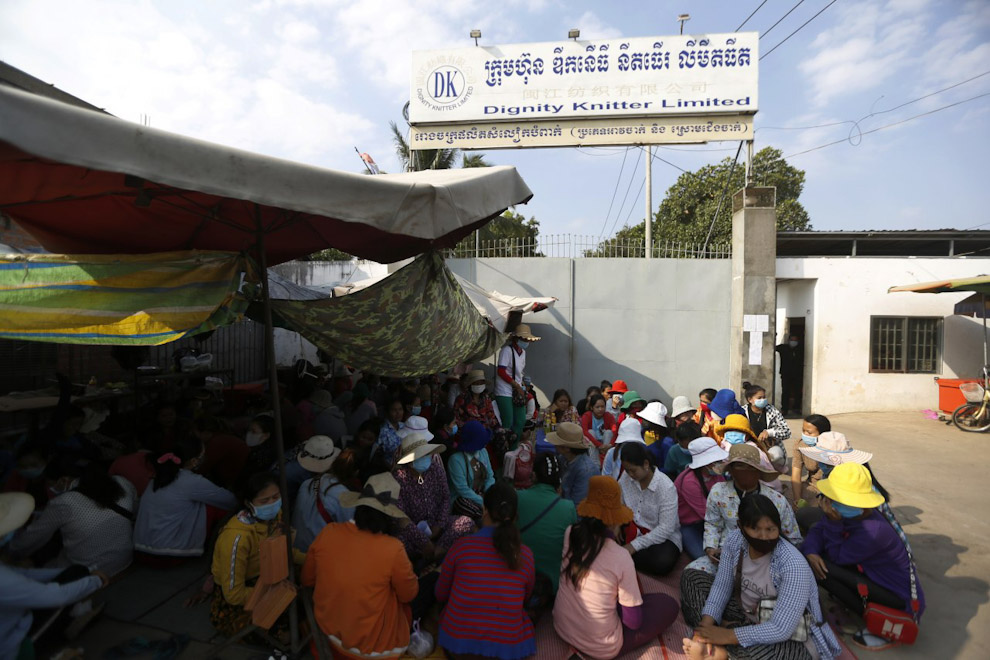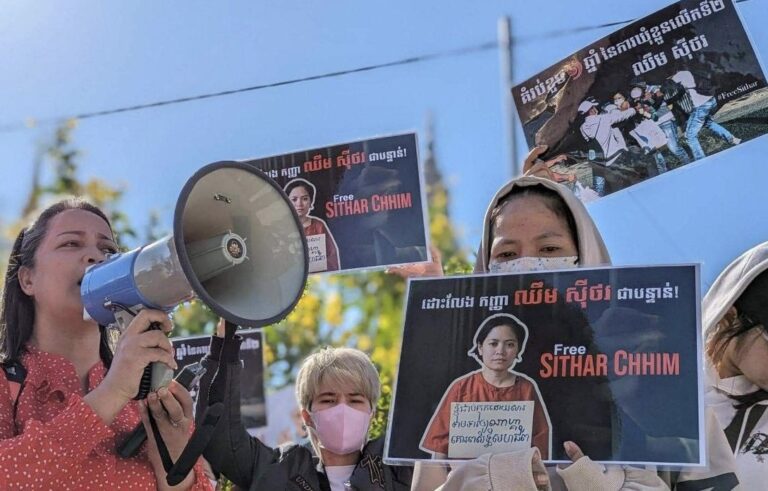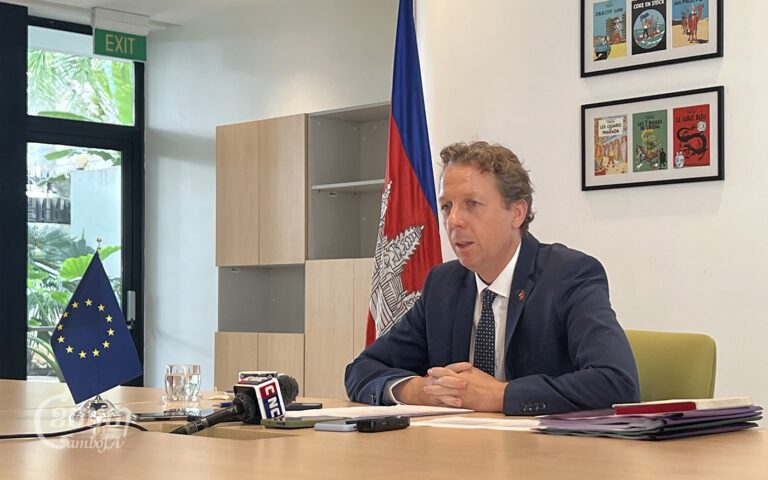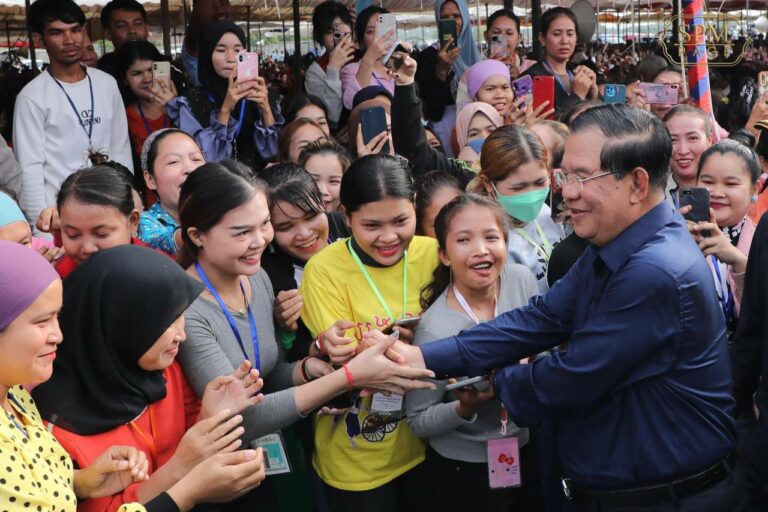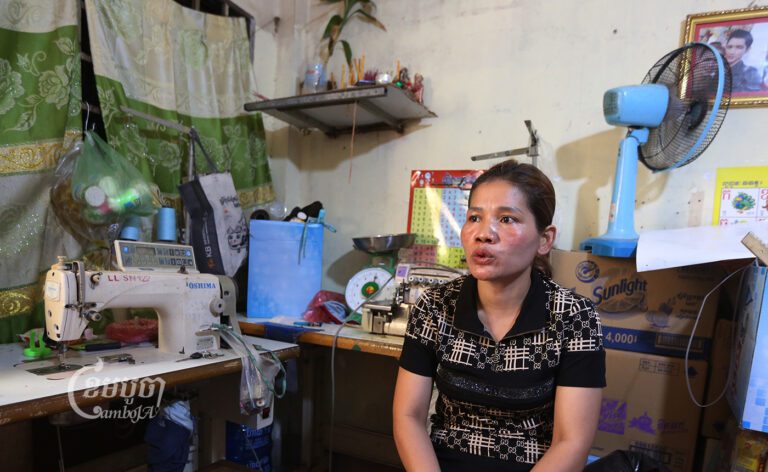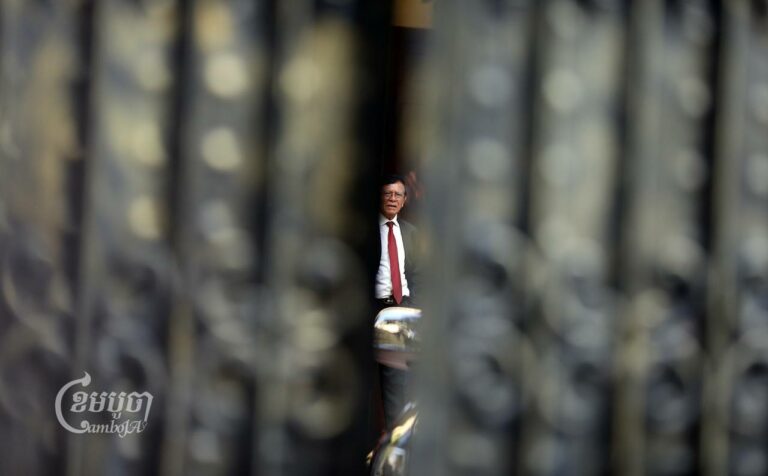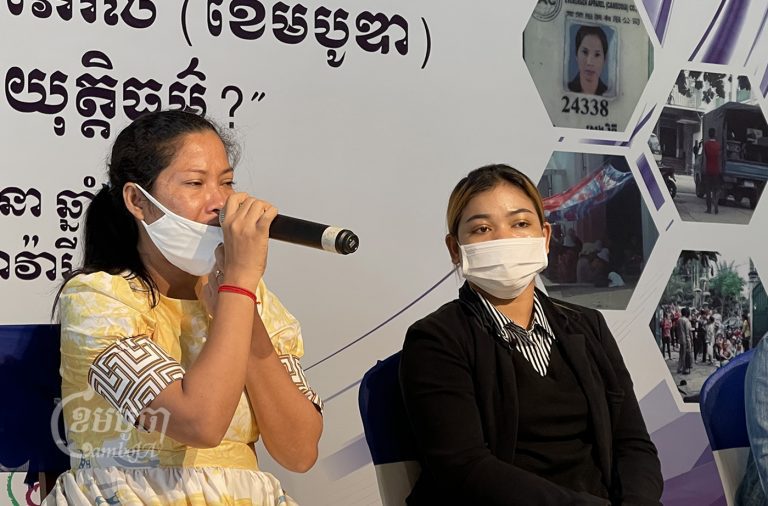The partial suspension of the European Union’s ‘Everything But Arms’ tariff-free agreement with Cambodia is set to take effect on August 12, as unions and civil society groups have said they are at a loss over how to deal with the impacts on the garment industry.
Unions said they have yet to prepare a plan for how to mitigate the effects of the withdrawal as the sector is already facing massive unemployment, while a Finance Ministry spokesman said the government’s plan would be similar to its Covid-19 response.
The withdrawal of tariff preferences will affect some garment and footwear products, and all travel goods and sugar, amounting to about one-fifth of Cambodia’s annual exports to the EU worth 1 billion euros, according to an EU statement announcing the decision on February 12.
The European Commission’s decision cited Cambodia’s “serious and systematic violations of the human rights principles enshrined in the International Covenant on Civil and Political Rights,” as the reason behind the decision.
“With regard to civil and political rights, there has been no significant progress since the launch of the EBA withdrawal procedure in February 2019,” it said. The Commission’s February decision followed a year of fact-finding missions and discussions with Cambodian authorities.
“Unless the European Parliament and the Council object, this will take effect on 12 August 2020,” the EU said at the time. As the parliament is on holiday until late August, the measure is expected to take effect as planned.
Ath Thorn, president of the Cambodian Labor Confederation (CLC), said unions and workers can’t take measures to mitigate the damage that the increased tariffs will cause to the industry because it is still dealing with the economic consequences of Covid-19.
“In the past, the unions sent a letter to the EU and the government asking to discuss [about the EBA issue] but beside that, we do not take much action,” Thorn said.
Thorn added that unions were not invited to play a role in discussions regarding EBA, and would have to rely on the government to address the inevitable difficulties that the garment sector will face.
“We will explain it to workers and request relevant institutions help solve the problem because if we lose EBA, workers will need to find new jobs or learn another skill,” Thorn said, adding that as of now, unions do not have a plan for how to address the cuts to EBA.
Mann Seng Hak, vice president of the Free Trade Union of Workers of the Kingdom of Cambodia, said his union also did not have a plan for how to deal with the effects increased tariffs would have on workers.
“We will hold a meeting with other unions after the EU announces the decision to decide what we should do,” Seng Hak said.
All garment workers are worried about the EBA suspension, he said, but their primary concern is Covid-19, which has forced hundreds of factories to close or suspended operations since March.
“I request all companies who are buyers, please continue to buy products from Cambodia to provide jobs for the people and help development in Cambodia,” Seng Hak said.
Some 256 Cambodian garment and footwear factories have halted operations due to Covid-19, according to a June letter sent by the Garment Manufacturers Association in Cambodia (GMAC), Cambodia Footwear Association and the European Chamber of Commerce to the EU asking it to delay the partial EBA withdrawal.
It goes on to say that most of the country’s remaining factories are operating at reduced capacity, and more than 130,000 garment workers have lost their jobs, a number that the industry groups say will continue to rise when the EBA’s partial suspension takes effect.
The suspensions would affect 20 percent of apparel imports, 30 percent of footwear imports, and all travel goods imports, according to GMAC.
Meas Soksensan, a spokesman at the Ministry of Economy and Finance said the body would work on a macroeconomic framework to help Cambodia cope with the tariff break suspensions.
He said that the strategy to restore the economy would be similar to the way the ministry has dealt with the slump in the industry due to Covid-19, and declined to elaborate further.
“It is not different from Covid-19 disease because the measures that we issued for Covid-19 mostly cover the EBA issue,” Soksensan said.
He added that the Finance Ministry had prepared a budget, but the Commerce Ministry would be in charge of paying the increased tariffs.
Foreign Affairs Ministry spokesman Koy Kuong said via Telegram messenger that the ministry will not release any further statement on the EBA.
“[We] await the final decision of the European Union and probably will not have a different stance from the previous statement,” Kuong said referring to the ministry’s response to the EU’s February announcement, in which it criticized the union’s decision as politically driven.
“The government remains firm in its principled position in rejecting any attempt by external parties in their use of trade and development assistance as pretexts to justify their interference in Cambodia’s internal affairs,” the ministry said at the time.
The statement said the concept of “serious and systematic violations” had been improperly applied to Cambodia’s situation due to the EU’s many misperceptions about the reality in the country, and had been applied arbitrarily to launch the EBA withdrawal procedure.
Pa Chanroeun, president of Cambodian Institute for Democracy, said the EU had clearly stated that it must see improvements in freedom of expression, political freedoms related to the CNRP, basic human rights and labor rights in order to maintain Cambodia’s EBA status.
“According to my observation, there seems to have been no response [by the government] to fulfill the demands of the European Union in the past,” he said.
He said the partial EBA suspension will make Cambodia a less attractive investment destination in terms of increases in the price of goods and moral uncertainty from investors and buyers over whether it is acceptable to support the garment industry in Cambodia.
“The products are produced in a country where abuses against human rights, democracy and labor rights, it could make the people at the European Union boycott products made in Cambodia.”
He added that the suspension of EBA combined with the economic effects of Covid-19 will create an even more dire situation for Cambodian garment and footwear sector workers.
“Of course losing EBA and the subsequent impact does not affect only garment workers or companies that export products from Cambodia to sell at the European Union, it will affect the family members and other citizens whose work is based on the garment sector and other goods that are impacted by the EBA withdrawal,” Chanroeun said.
GMAC Secretary-General Ken Loo said the association had tried its best to keep Cambodia’s EBA status, making five appeals to the EU to delay the withdrawal. He said he is now resigned to the fact that the partial suspension would go ahead as planned, and that Cambodia would have to begin to pay tax on goods exported to the union.


